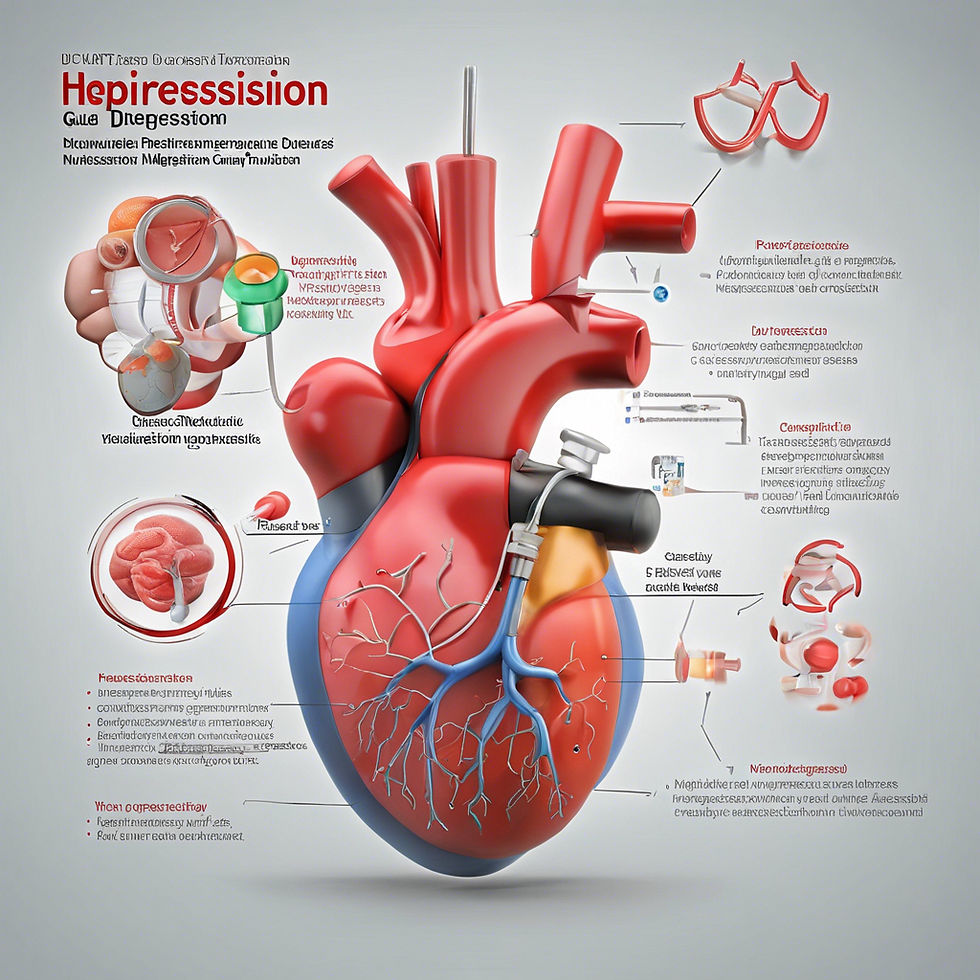Habits you should adopt to Lead a Healthy Lifestyle
- cadigenhealthcarec
- Jun 24, 2023
- 3 min read
Living a healthy lifestyle is a goal shared by many individuals. As a pharmaceutical company committed to promoting overall well-being, we understand the importance of healthy habits in maintaining a balanced and fulfilling life. In this blog post, we will explore essential habits that can help you lead a healthy lifestyle. From proper nutrition and regular physical activity to quality sleep and stress management, these habits form the foundation for improved health and vitality. By incorporating these practices into your daily routine, you can enhance your well-being and enjoy a happier, more energetic life.

1. Prioritize Balanced Nutrition: Good nutrition is the cornerstone of a healthy lifestyle. By fueling your body with the right nutrients, you provide it with the energy and building blocks it needs to function optimally. Make sure to include a variety of fruits, vegetables, whole grains, lean proteins, and healthy fats in your diet. Avoid excessive consumption of processed foods, sugary drinks, and unhealthy snacks. Instead, opt for home-cooked meals using fresh ingredients. Pay attention to portion sizes and listen to your body's hunger and fullness cues. Consulting a nutritionist or dietitian can help you create a personalized meal plan that suits your specific needs.
2. Engage in Regular Physical Activity: Regular exercise is crucial for maintaining a healthy lifestyle. It not only improves cardiovascular fitness but also enhances muscle strength, flexibility, and mental well-being. Aim for at least 150 minutes of moderate-intensity aerobic activity or 75 minutes of vigorous-intensity aerobic activity each week. Additionally, include strength training exercises at least two days a week to promote muscle health. Find physical activities that you enjoy, whether it's jogging, swimming, cycling, dancing, or playing a sport. Remember, even small steps like taking the stairs instead of the elevator or going for a brisk walk during lunch break can make a significant difference in your overall fitness.
3. Get Sufficient Quality Sleep: Sleep is often undervalued, but it plays a vital role in maintaining good health. Aim for 7-9 hours of quality sleep each night. Create a relaxing bedtime routine to signal your body that it's time to rest. Avoid screens, caffeine, and stimulating activities before bed. Ensure your sleeping environment is dark, quiet, and comfortable. Quality sleep promotes physical and mental rejuvenation, boosts immunity, and enhances cognitive function. If you struggle with sleep-related issues, consult a healthcare professional for guidance.
4. Manage Stress Effectively: Chronic stress can have detrimental effects on both physical and mental health. It is crucial to develop healthy coping mechanisms to manage stress effectively. Engage in activities that help you relax and unwind, such as practicing mindfulness, meditation, deep breathing exercises, or engaging in hobbies. Regular exercise can also alleviate stress and improve your mood by releasing endorphins, the body's natural feel-good hormones. Build a support system of family and friends who can provide emotional support when needed. If stress becomes overwhelming, seek professional help from therapists or counselors specialized in stress management techniques.
5. Stay Hydrated: Hydration is essential for maintaining proper bodily functions. Aim to drink at least 8 glasses (64 ounces) of water per day. Increase your fluid intake if you engage in strenuous activities or during hot weather. Avoid excessive consumption of sugary beverages and alcohol, as they can lead to dehydration. Carry a reusable water bottle with you to encourage regular hydration throughout the day.
6. Practice Mindful Eating: Mindful eating involves paying attention to your body's hunger and fullness cues, as well as the sensory experience of eating. Slow down and savor each bite, focusing on the taste, texture, and aroma of your food. Avoid distractions like television or smartphones while eating. This practice can help prevent overeating, improve digestion, and foster a healthier relationship with food.
7. Maintain Regular Health Check-ups: Regular health check-ups are vital for preventive care and early detection of any potential health issues. Schedule routine visits with your healthcare provider to monitor your overall health, get vaccinations, and undergo necessary screenings. Follow medical advice and take prescribed medications as directed. Stay proactive in managing your health and address any concerns promptly.
Conclusion:
Adopting healthy habits is a journey that requires commitment and perseverance. By incorporating balanced nutrition, regular physical activity, sufficient sleep, effective stress management, hydration, mindful eating, and regular health check-ups into your lifestyle, you can lay the foundation for a healthier and more fulfilling life. Remember, small changes over time can lead to significant improvements in your overall well-being. Embrace these habits and make them a part of your daily routine to enjoy the rewards of good health for years to come. Your future self will thank you!



Comments